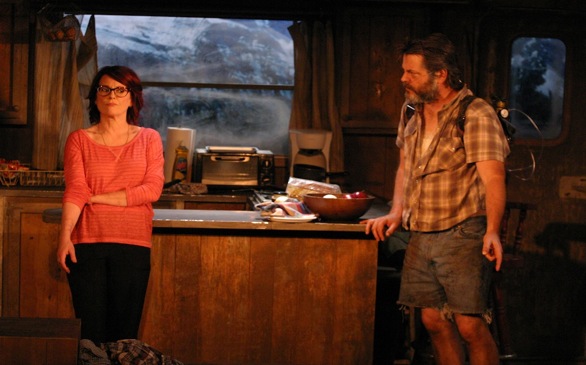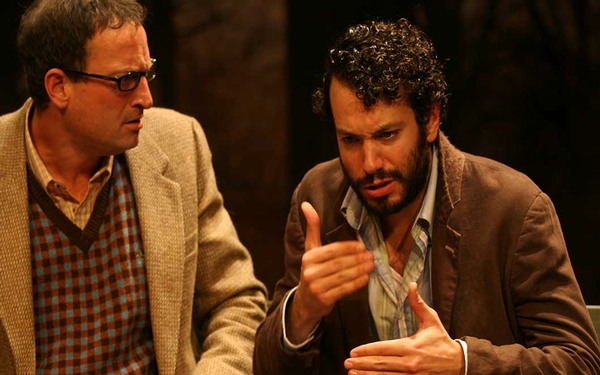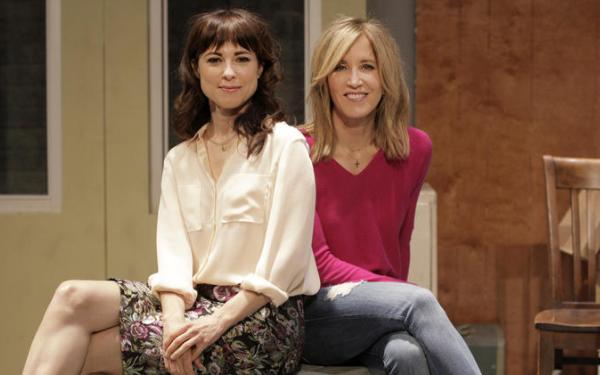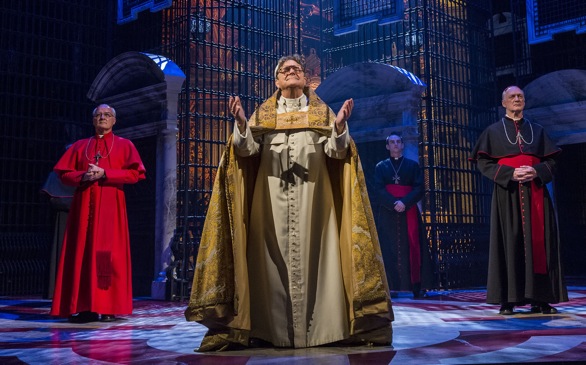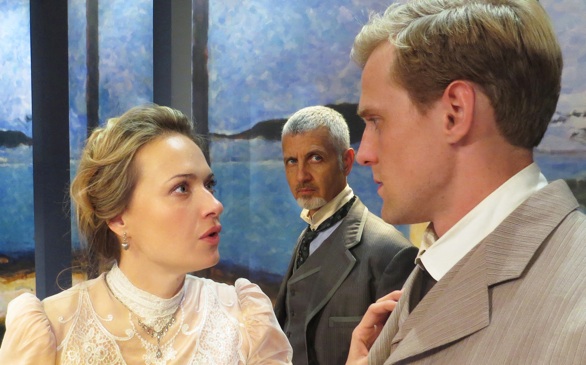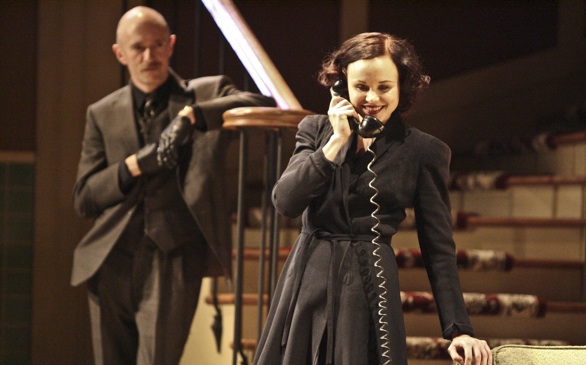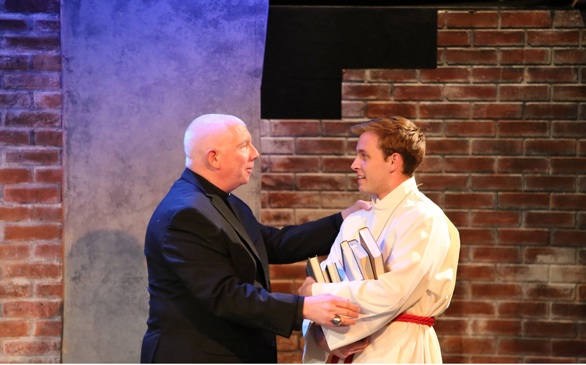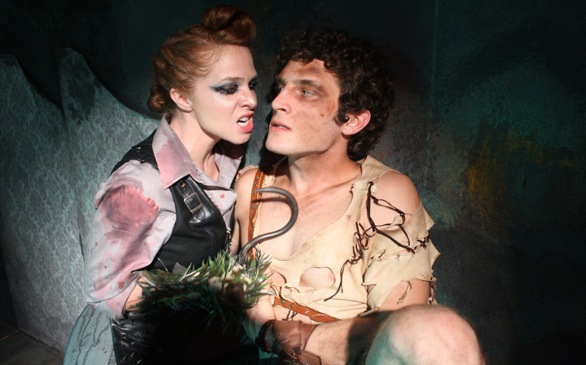With the real-life husband and wife team of Nick Offerman (Ulysses) and Megan Mullally (Emma) both returning to their roots as stage actors, “Annapurna” at L.A.’s Odyssey Theatre stands as a brilliant example of the actors’ versatility for live and televised acting mediums. Both are known recently for their small-screen comedy work ("Parks and Recreation" and "Will & Grace"), and they deliver an outstanding live performance that combines humor and unexpected levels of serious emotion.
Written by Sharr White, “Annapurna” reaffirms and portrays the value in simple human conversation. This idea is literally the substance of the entire show: one angry, loving and shocking “catching up” 90-minute conversation between Ulysses and Emma occurs when she randomly shows up on the doorstep of his Colorado trailer after leaving him 20 years prior. Never has eavesdropping on a private moment been so exhilarating and riveting to watch!
By discussing the most common of human issues, ranging from cancer and modern poverty to domestic abuse and alcoholism all in one scene, the play becomes a thoughtful and entertaining dialogue about topics that average people face every day.
As two well-known television stars, Offerman and Mullally pull off “normal” flawlessly, and it was often easy to forget that 10 feet in front of you stood such fame. As a result of their own matrimony, it is obvious that the pair is extremely comfortable with each other.
Most of the intimacy between the actors and the audience is due to the set. The stage is designed as a camping trailer, and it's only a few feet away from the audience. It’s decorated with the perfect blend of disgusting trash and beautiful, intellectual poetry anthologies. The set is so intricately designed that it functions as a sort of third, silent character. Each corner of the trailer speaks to a faucet of terminally ill Ulysses’s character, from the semi-buried typewriter reminiscent of his early aspirations of being a poetry writer, to the piles of junk reflecting a life given up on.
Each member of the 99-person audience is able to feel as if they were sitting right inside the dilapidated trailer on the dirty couch with Ulysses and Emma, discovering lost love after 20 years and discussing tough issues. For the most part, the only action that occurred in the show was that of Emma physically cleaning Ulysses’s trailer (however, their banter reveals just how messy her life is as well).
In the most memorable acting moment, Offerman as Ulysses breaks down into one of the most surprising, emotionally raw displays of despair. This moment is such a stark, yet refreshing, contrast to his beloved character of Ron Swanson on “Parks and Recreation,” who is delightfully unemotional about everything. Terrifying and heartbreaking to experience, his tears are beyond realistic and serve as a reminder of the consequences of human error – it was done in such a beautiful way that I wish I could experience it a second time.
But mistakes and regret are not the sole components of “Annapurna’s” subject matter. For example, the play begins with the naked, self-proclaimed “accidental nudist” Ulysses cooking with only a small apron on, causing the mostly middle-aged audience to laugh loudly and often. Although riddled with serious influences, humor was laced into each conversation topic, expertly timed and creatively directed to assure the mood never got too heavy.
Within the 90-minute no-intermission span of the show, Offerman, Mullally and the words of White craft a world where laughter and tears combine into an inspiring display of humanity through theater; it’s a show that could easily be performed many years to come.
Grade: A


